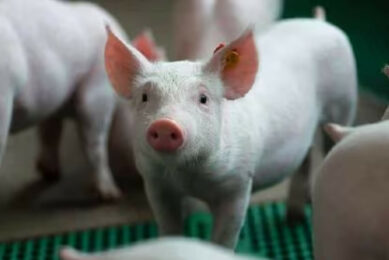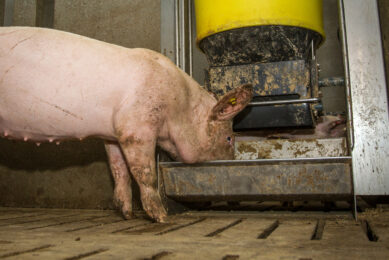Semen motility, SPF and SPACE in Pig Progress 8
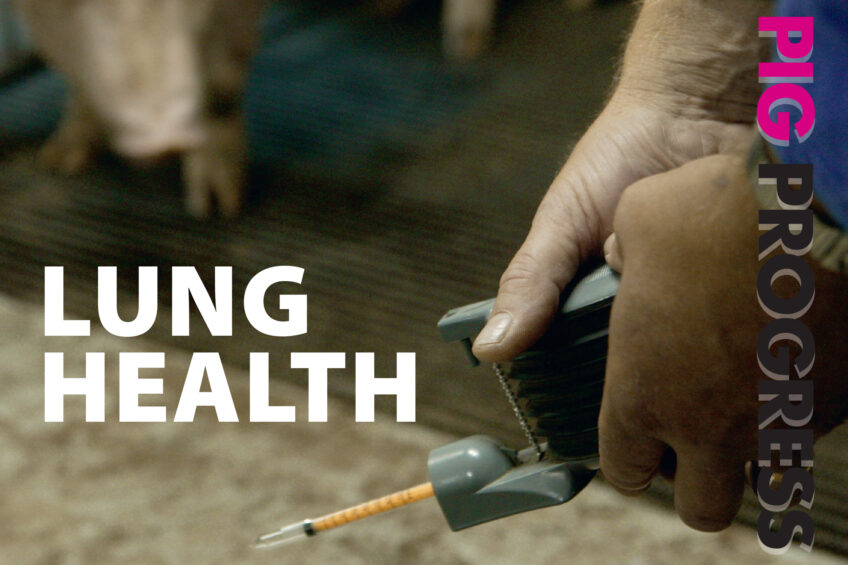
The 8th edition of Pig Progress for 2022 takes a closer look at lung health and the impact of chronic exposure to ammonia on pigs. Then, a look at SPF – a must-have for Denmark’s breeding farms – and semen motility where timing counts. And, what interesting innovations stood out at SPACE?
Impact of chronic exposure to ammonia on pigs
Swine production intensification can lead to high concentrations of ammonia emissions from commercial swine farms. But, if pigs are expected to perform well, they must be provided with fresh air. What exactly is ammonia, where does it come from, what are its damaging impacts, and how can the issue be tackled? Find out on pages 6-7.
Lung lesions are related to lower ADG – but by how much?
A meta-analysis has confirmed that scoring of pig lungs for typical enzootic pneumonia-like lesions provides quantitative informational value, indicating not only the presence and intensity of EP in the swine herd, but also the losses in weight gain of the pig populations investigated. Pages 8-9.
Columns: Sow condition, part 2
Dr Casey Bradley’s first column in the previous edition focused on practical considerations in the barn. In this column, she continues to look at the condition of the sow but focuses here on practical considerations from a nutritionist’s perspective. Page 10.
What was new at SPACE 2022?
SPACE took place again this September in Rennes, France, with the main theme on reducing the environmental impact of livestock farming. In this article on pages 12-13, Pig Progress editor, Vincent ter Beek, highlights some interesting innovations that jumped out, including a liquid iron supplement and diagnostic colostrum tool.
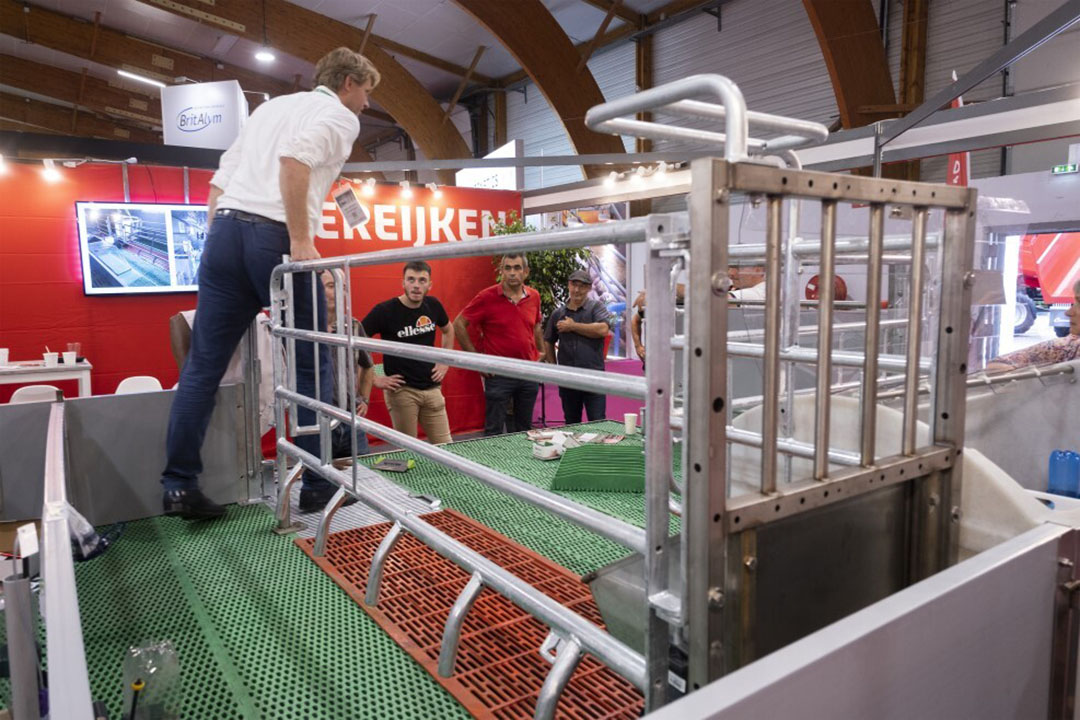
SPF – a must-have for Denmark’s breeding farms
Through a specific-pathogen-free (SPF) system, the health level of most pig farms is public knowledge in Denmark. This method, in which 2,450 pig farms currently participate, continues to be valuable to the sector, particularly for breeding farms. Pages 14-15.
Semen motility is a matter of planning
Several factors deserve attention when evaluating swine semen, including semen motility. It pays to understand not only what is measured but when it is measured. Page 17.
HoCoTec on its way to becoming an integrator
Pig Progress first visited HoCoTec in Colombia in 2017. This model and training farm was established in 2012 to help the Latin American swine industry learn and prosper. Over recent years, the farm has made much progress, from a genetics switch to the construction of a slaughterhouse. This article on pages 20-23 highlights these steps taken as part of a bigger plan.
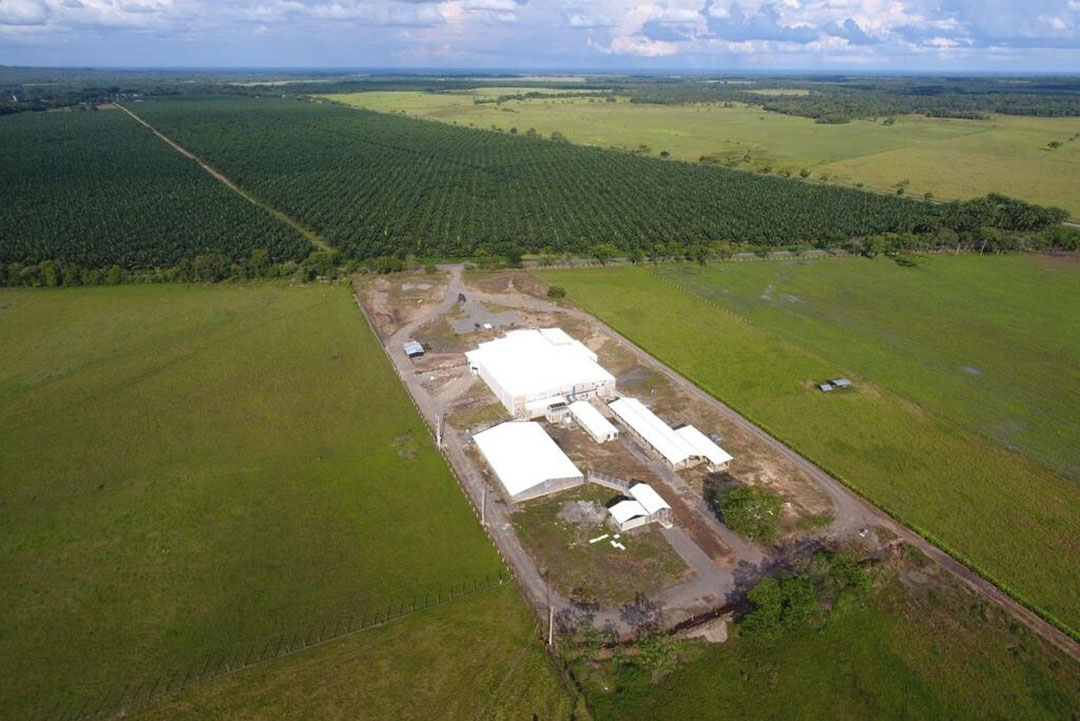
Why it is essential to do sensitivity testing
This article on pages 24-25 explores how we know which antibiotics to use on which animals and in what quantities. Important questions as awareness increases about using antibiotics prudently.
Can bakery and confectionary products be used in pig feed?
Over a billion tonnes of food is wasted every year. But, with feed costs on an upward projectory and sustainability concerns mounting, might former food products have a place in swine diets? This article on pages 26-27 delves into a study that set to find out.

Reducing antibiotic use one switch at a time
Pig farmers have shown that it is possible to improve pig performance without the use of antibiotics. Trouw Nutrition’s ‘Small Switches. Big Change’ antibiotic reduction programme helps assess a farm’s production challenges and identify practical steps to meet its goals. Pages 28-29.
Successful weaning depends on 3 conditions
Is it still possible to achieve excellent performance with post-weaning piglets in the face of a ban on both growth-promoting antibiotics and pharmacological levels of zinc oxide? Yes! This article on pages 30-31 highlights 3 conditions relating to the sow, feed, and the environment.
Column: Clean pigs
Given the choice, pigs like to keep themselves clean, says researcher and columnist, Irene Camerlink, who discusses functional areas in pig pens on page 34.



